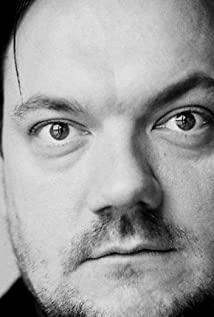The following contains part of the plot, so, people have seen the film about the exchange, not seen before may have seen the movie say
the film talking about the 1984 East Germany. Coincidentally, 1984. Yes, the content is very Orville-style things: East German STASI (Guoan)-this is the East German KGB. Of course it is not as good as our KGB. The content is about a STASI agent who was ordered to monitor an East German artist who was suspected of politically unreliable betrayal of national interests.
Here are just a few random characters, as well as the structure and connotation of the film.
Gerd Wiesler (HGW): He is probably the real protagonist of the film. This character is very complicated. From the beginning, he was a loyal figure to the regime. He wholeheartedly supports this system. When his companion talked about promotion, what he thought of was the oath he took when he joined the party. His life is very simple and restrained, without too many personal needs. Pay attention to a short shot of his home in the previous part: living in a small room in a huge, featureless apartment with simple decoration. His eating life is also simple. Watch the news when you turn on the TV, touting the economic development achievements of East Germany. No wife. This is a small screw within the system. Thousands of him are pushing the regime forward. Unlike those with all kinds of speculative psychology, he is still an idealist, driven by a certain belief. He did believe that what he did was meaningful. He meticulously completed his mission within the system: as a STASI agent, he reported to the country all politically unreliable elements. He collects intelligence anytime, anywhere. He shows no mercy to class enemies and enemies of the people. To ordinary people, he is just another abominable and ruthless agent who represents this system.
Georg Dreyman (GD): Actor. playwright. The descendants of the bourgeoisie, but want to reinvent themselves and become a laborer. He has abundant talents. He supports this system. He wrote excellent scripts and was highly recognized by the party and government. But as a literati who has been deeply influenced by Western petty-bourgeois sentiments, he is also weak and vacillating. At this point, the ruthless and experienced HGW in front saw it through at a glance. GD supports the system, but hopes that a hundred flowers bloom, and cannot tolerate the harsh policies of the system against literati. His friend, the director Albert Jerska, was blacklisted by the party and the government and was unable to perform for seven years. He was extremely melancholy and committed suicide, which shocked him greatly. Together with a few friends, he decided to write a script on the subject of suicide and smuggle it to the Western world for publication. The script mentioned that East Germany stopped publishing suicide data after 1977 and classified suicide as murder ("self-murder") because the number of suicides in the country each year is too high, and publishing it is detrimental to the country's image. This script is such a political critical drama.
GD is a typical literati. The temperament is melancholy, sensitive, and suspicious. Very idealistic. Politically, it is relatively naive. His girlfriend is the drama actor Christa-Maria Sieland. He loves her deeply.
Christa-Maria Sieland (CMS): Female drama actor (This is played by a very sexy and mature German woman. I estimated that she was at least 45 years old at the time. I checked, and sure enough, it happened to be 45 years old, showing my ability to judge a woman’s age not bad). CMS is a very good and artistically talented actor. On the one hand, she truly pursues her own artistic career and career; on the other hand, she understands reality very well and is very sensible. She knows the nature of the system she is in. She is well aware of the weakness of an ordinary individual in front of the system. She knows how to adapt to this system and get what she needs. She is an amazing reality. Maybe, in that country, she is not outstanding, but she has the same realism as most people. In order to guarantee her artistic career and her survival, she would not hesitate to sell everything. Betray one's body. Betray your boyfriend. Sell your soul. She is ready to trade at any time. It should be noted that the CMS here is not a political idealist or activist. She is just another ordinary person living in this system. She is a drama actor and wants her career. Think about it better, that's it. She loves GD.
Anton Grubitz (AG): The leader of East Germany's STASI. HGW's past classmates, current boss. This person is very different from HGW. He is a complete professional opportunist. He is not interested in the system and ideology. What he cares about is how to get promoted, getting higher and higher in this system. For this purpose, you can do whatever you can. He was commissioned by a minister and a member of the Party Central Committee to monitor GD to see if there were any crimes against the Party and the people. The real reason is that this chief is attracted to CMS, so he wants to get rid of GD, and then monopolize CMS.
Soon, we discovered that the chief easily got into CMS. CMS doesn't resist at all. In order to maintain the development of her career, she accepted the chief with little resistance and betrayed her body. Probably the director wanted to show the strength of the system and the smallness of the individual. But I feel that CMS gave up too easily, without any support. All in all, I think this woman is also very utilitarian.
HGW is appointed by AG to monitor GD around the clock. They secretly arranged various eavesdropping devices at GD's house. HGW can snoop and hear all the conversations in every room of GD's house completely freely. CMS lives in GD's house. Every day, HGW works in a top-floor loft in the GD apartment. HGW comprehensively monitors GD and CMS. In this way, I walked into the lives of the two and changed my own life at the same time.
(The writing of this article has been interrupted for two weeks, so I decided to end it hastily.)
This film reflects several problems, one of which is systemic. How it opposes human nature. Specifically, the inhuman STASI who accuses the evil of oppression and terror. The second is the people under the system. For example, a small person like CMS, a person who survives under the system. Everything is out of their control. They seek perfection under the system. Finally, there are individuals like HGW. The film seems to tell the process of HGW's gradual disappointment, awareness, and self-help during the entire process of monitoring GD.
HGW is affected by all aspects. The darkness of politics, various uses and deceptions disappointed this idealism. The bourgeois humanitarianism and petty bourgeoisie in the life and pursuit of GD and CMS further shaken his firm belief. His temperament, the other side taste gradually been excavated
film has an interesting small fragments, indicating that this change of HGW. In the elevator, he met a child holding a ball. The child said, I heard that you are from STASI. My dad said that the people in STASI are very bad. After HGW heard this, out of professional instinct, he blurted out and wanted to ask the child his father's name for the record. But several previous events have transformed HGW. He retracted what he was going to blurt out, but instead made a joke and asked the kid what the name of the ball was.
Through the monitoring of GD, HGW has re-understood the system, recognized itself, and intervened in GD's life. Not only did he fail to truthfully expose the counter-revolutionary actions of GD he was monitoring (who secretly wrote a political drama criticizing East Germany with several other artists and smuggled it to West Germany), he also did everything he could to help cover GD’s activities. action.
There is not much description of HGW's choice in the film, so it is difficult for us to know his exact motives. But his cover of GD is obviously path-dependent, and once done, he cannot return. At this time, he was guilty of multiple crimes by covering up GD's counter-revolutionary activities on the one hand. In order to protect himself, he can only do his best to continue to cover GD and help obliterate all traces of GD's left.
By the end of the film, when HGW secretly discovered that GD had secretly used the typewriter for printing counter-revolutionary dramas in the latter's possession to destroy the evidence, the film already had a few dramas. The HGW at this time is not for the system, not for GD or CMS, but I am afraid it is more to save itself.
CMS is another important person. This person is a typical example of a weak person in the system who willingly accepts his own destiny. She can sell everything for her own survival. But the film did not crudely condemn it. This is too sophisticated. The film only tries to understand the survival of such people from the perspective of the system. Rather than saying that CMS is immoral and perfidious, it can be said that the body creates such a person, distorting and destroying the good people into this way. At the end of the film, GD held the corpse of CMS, crying bitterly, "I can't help you!" In fact, CMS betrayed GD. But GD has to say sorry to CMS. Because he thinks he involved CMS, which caused all this misfortune. GD will no longer hold CMS accountable.
It's very married here. The film tries its best to understand the incompetence of weak individuals in a powerful system, and avoid criticizing individuals' behaviors that are conventionally unethical. The film is to understand the people in the system. The helplessness of people in the system. In this way, there is such an assumption. It seems that the individual cannot be responsible, and all actions can be forgiven. Is CMS just a victim of the system? Does she herself need to be responsible? How much responsibility does she have? If individuals are not responsible, then they are no longer independent individuals. It's not even human anymore. They cannot be held responsible for their actions. They do not need to be morally restrained. They are not autonomous. Here, the horror of the system is that it dehumanizes people.
Similar examples can be imagined. For example, are we going to condemn those who committed many absurd acts during the Cultural Revolution? Living in our age, in such a comfortable environment, it is probably inappropriate to make simple judgments for those who made extreme choices in the extreme environment of the extreme age and caused extreme results. The correct attitude is not to simply condemn, but to understand, to understand the historical situation at the time, to understand the personal situation, mood, motives, and choices. Of course, I think it is impossible to avoid personal responsibility and it is not worth promoting. To deal with this kind of problem, it just needs a more sophisticated and nuanced understanding,
View more about The Lives of Others reviews











